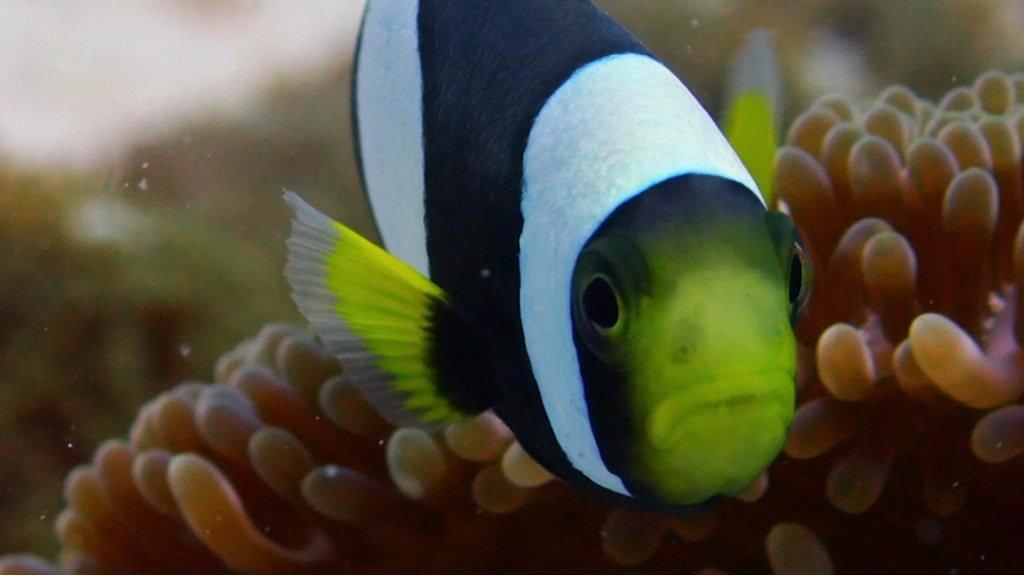Scientists suggest eating more unusual seafood could help endangered species
- Published
- comments
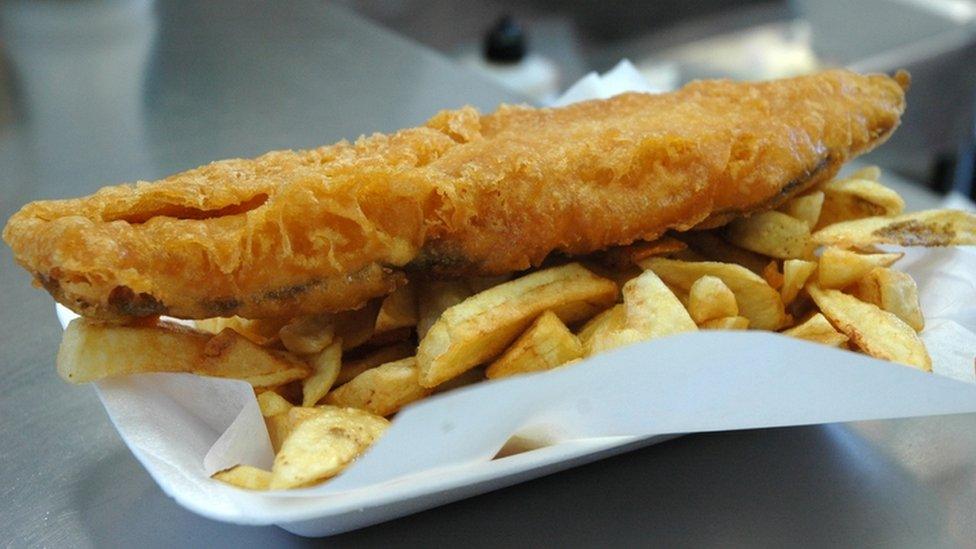
Fish and chips is a popular takeaway dish in the UK
Fish and chips is one of Britain's most popular dishes, but would you be up for trying an unusual alternative?
That's what researchers from the University of Queensland in Australia are asking people to do.
They're urging people to swap out their usual choices of fish, for more unusual options, such as ones like jellyfish.
They say 92 endangered species of fish caught in oceans around the world, including 11 that are critically endangered, are ending up on people's plates.
This includes varieties of bluefin tuna, sturgeon and angelshark.
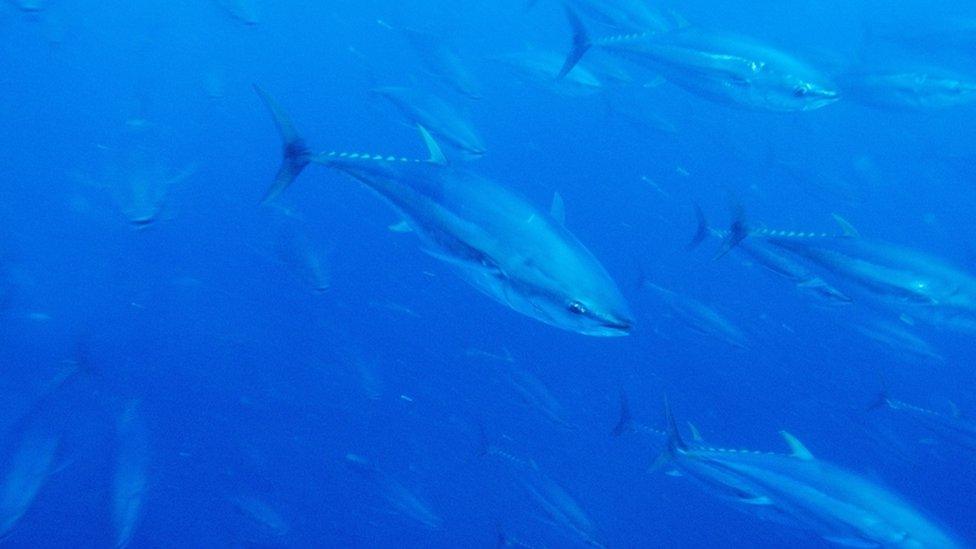
Bluefin tuna numbers have fallen and they are now an endangered species
A report from the Commission for the Conservation of Southern Bluefin Tuna found their numbers had fallen by 17% since people had started fishing for them.
The eggs of sturgeon, known as roe, are often used to make the delicacy caviar which has affected their numbers.
Levels of angelshark have also seen a significant drop. The fish has been declared extinct in the North Sea and they're also dwindling in parts of the northern Mediterranean.
Other fish including Albocore tuna, farmed Atlantic salmon and ocean perch are under threat too.
Thirteen of the endangered species of fish are eaten in several European countries including Germany, the UK and Spain. America is also a big consumer.
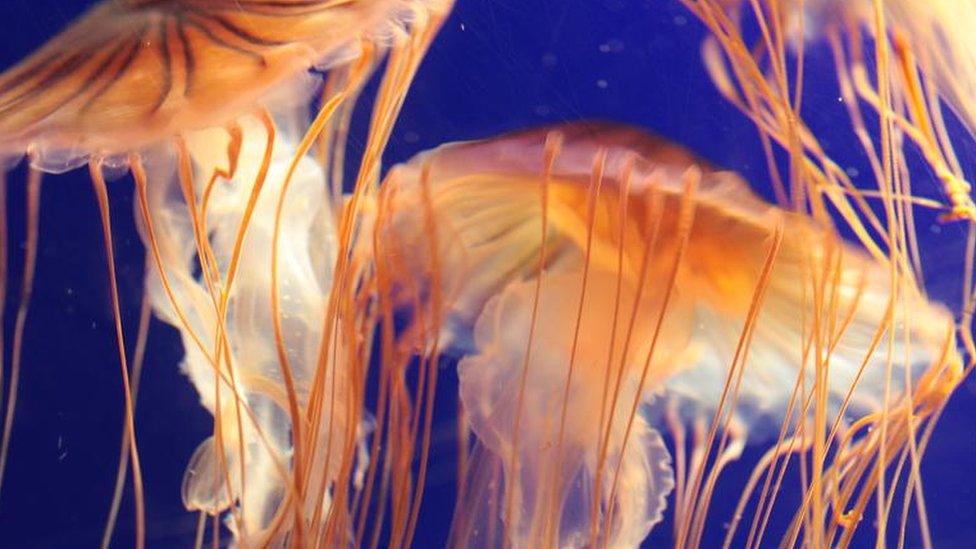
Researchers want people to swap their usual fish choices for jellyfish in order to help protect endangered species
Conservationists now want people to try out jellyfish, which research has shown are increasing in number rapidly.
"Jellyfish could replace fish and chips on a new sustainable takeaway menu to help keep threatened species off the plate," the researchers said.
The fish, which is often eaten in countries including China and Japan, has lots of known health benefits. It's rich in nutrients including vitamin B12, magnesium and iron and it's also a good source of protein.
Jellyfish have posed a danger to other fish including salmon and in the past they've also led power plants to shut down by clogging up systems.
The researchers believe eating them could help control their numbers and protect other species.
nrfish
One of the big issues highlighted by the study is all about how the fishing industry is currently managed. Poor regulation means people may not even know when they're eating endangered species of fish.
"The seafood industry is difficult to manage from a conservation perspective because it has supply chains that span multiple international waters, without a governing body," said Doctoral student Leslie Roberson who worked on the study.
"We don't know what we're eating, it's really hard to trace seafood back to its origin and species because the industry is such a mess."
Senior research fellow Dr Carissa Klein added: "It should be illegal to eat something that is threatened by extinction, especially species that are critically endangered - if we can better coordinate fisheries and conservation policies, we can prevent it from happening."
Would you be up for trying jellyfish and chips? Let us know in the comments!
- Published13 May 2015
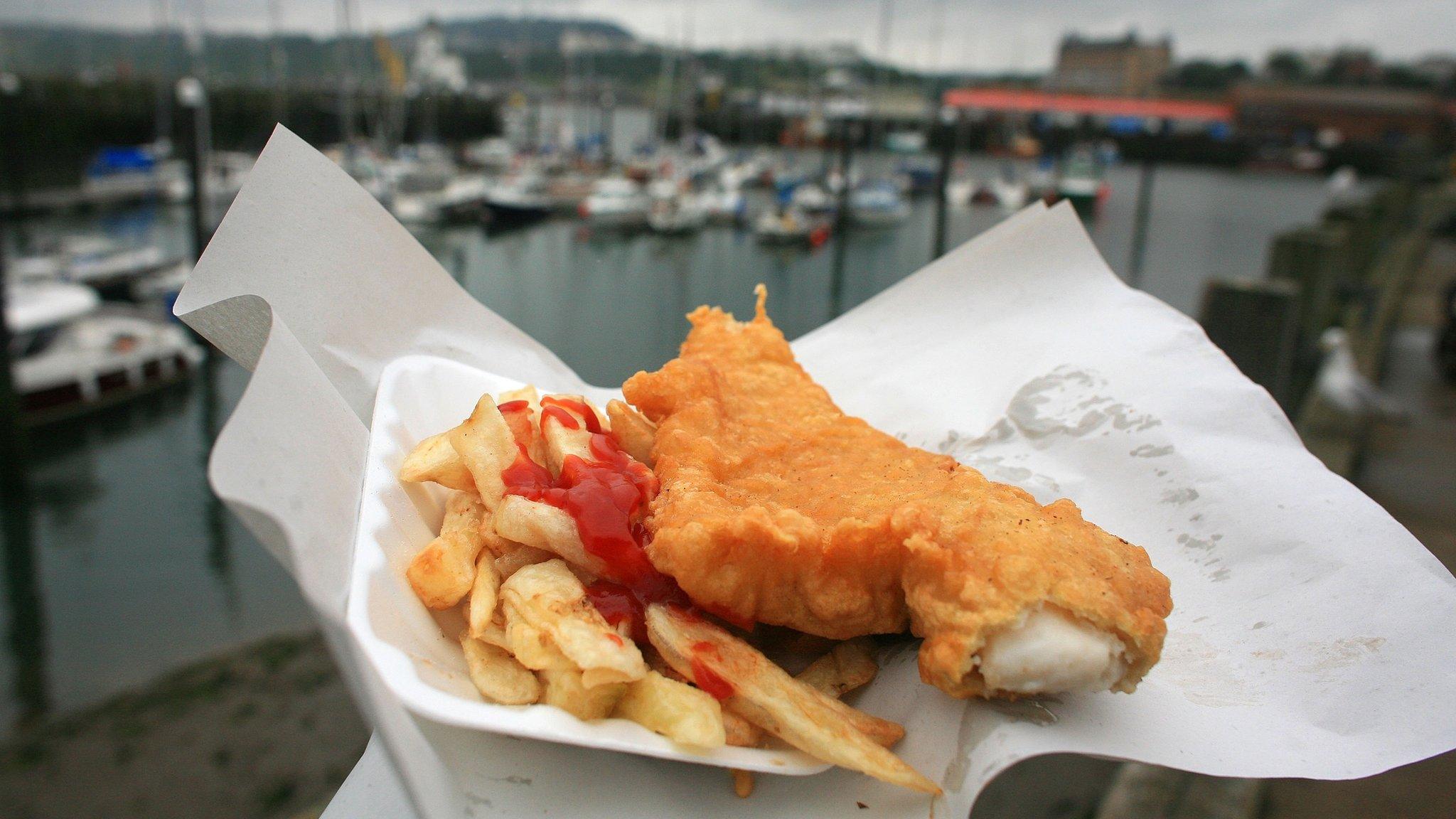
- Published25 January 2018
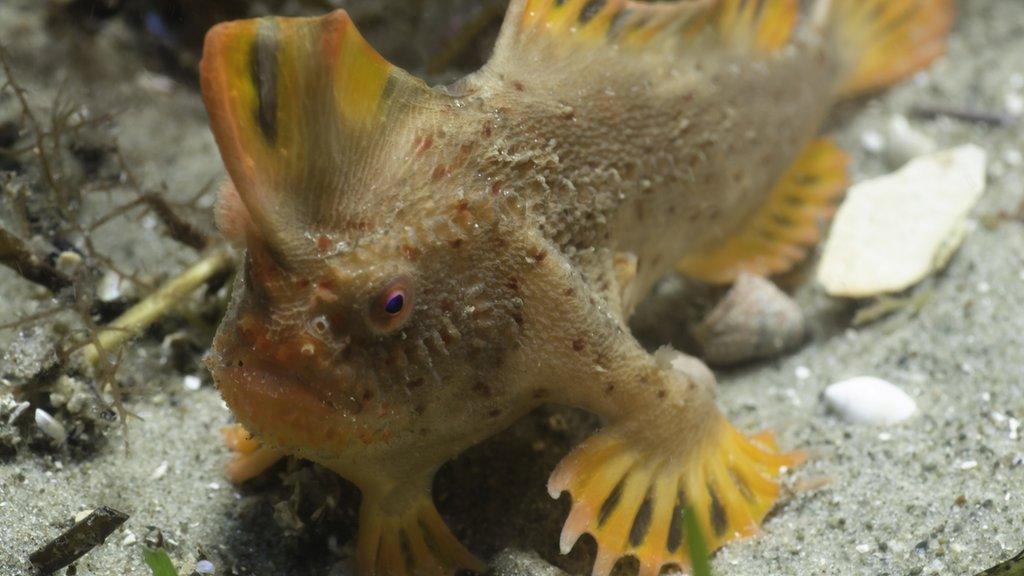
- Published1 July 2018
